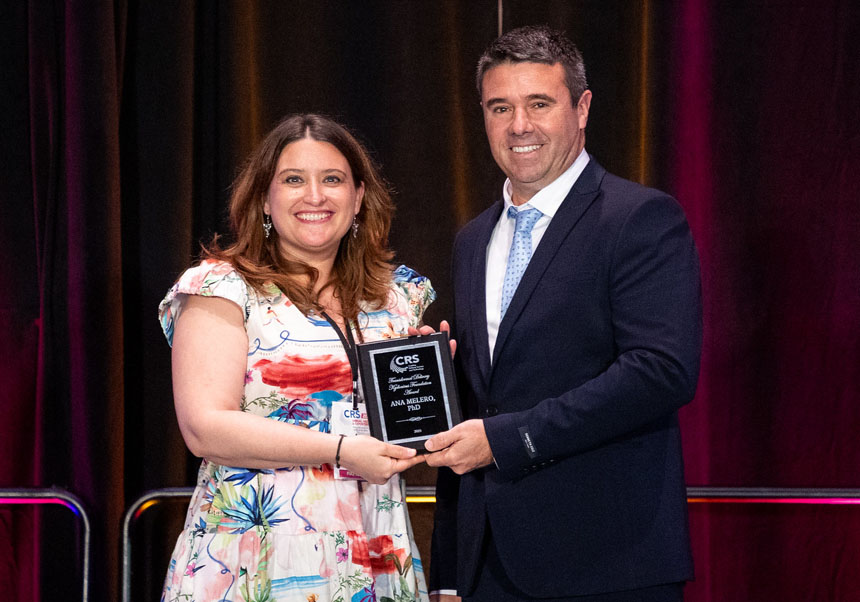A patient with cystic fibrosis overcomes acute rejection of lung transplant through phage therapy
- Marketing and Communication Service
- Olga Denia Moreno
- September 10th, 2025
A team led by the University of Valencia at the Institute for Integrative Systems Biology (I2SysBio, UV-CSIC) has succeeded in eradicating a chronic Pseudomonas aeruginosa infection in a cystic fibrosis (CF) patient with a double lung transplant. Compassionate-use therapy with bacteriophages, still under clinical development, has shown its potential as a complementary treatment in cases of antibiotic-resistant infections. The study has been published by the American Society for Microbiology.
Resistance to antimicrobial drugs, such as antibiotics, poses a significant threat to human health worldwide. Consequently, the search for alternative treatments is a major focus of scientific research, ranging from biological therapies and new molecules to nanotechnology, the microbiome and gene editing.
Phages or bacteriophages — viruses that infect and destroy specific bacteria — are being used as a complementary treatment for multi-resistant infections that do not respond to conventional therapies. Although they are not yet approved as standard medicines, their application is possible under compassionate-use regimes or in clinical trials, limited to situations where no viable alternatives exist.
The article recently published by ASM Case Reports describes the use of phage therapy to treat chronic infection caused by Pseudomonas aeruginosa, a bacterium responsible for infections with high morbidity and mortality and, in all likelihood, the most invasive pathogen in bronchopulmonary infections in cystic fibrosis (CF). This genetic disorder, which primarily affects the lungs and intestines, has a prevalence of 1 in 5,000 people in Europe.
The research team, led by Pilar Domingo-Calap, virologist at the University of Valencia and researcher at I2SysBio (UV-CSIC), succeeded in eradicating chronic Pseudomonas aeruginosa infection in a 44-year-old cystic fibrosis patient who had undergone two double lung transplants.
The patient had suffered from chronic lung infection since childhood and had undergone two bilateral lung transplants, at the ages of 29 and 40, both followed by rejection episodes and intravenous antibiotic treatments that proved ineffective, further worsening her lung function and general condition. At the end of 2023, the Spanish Agency for Medicines and Health Products (AEMPS) approved the compassionate treatment and authorised the Institute for Integrative Systems Biology — a joint centre of the University of Valencia and the Spanish National Research Council — to carry it out under the direction of principal investigator Pilar Domingo.
The treatment involved the administration of nebulised phages, in two cycles of 10 days, combined with the patient’s conventional therapy. Within a few days, her lung capacity improved until the infection was completely eradicated, thus avoiding a third transplant. “The patient currently enjoys a good quality of life and the bacterium has not reappeared since the phage treatment, more than a year and a half ago, demonstrating the long-term effectiveness of the therapy”, the researcher added.
This pioneering case, applying bacteriophages in transplant patients, highlights the enormous potential of phage therapy as a complementary treatment against chronic and resistant infections. “Although it still faces regulatory and clinical challenges, advances in this field are encouraging and point towards its future integration into conventional medicine”, concludes Pilar Domingo-Calap.
The project was funded through crowdfunding in collaboration with the Spanish Cystic Fibrosis Federation, the project SEJIGENT/2021/014 (Valencian Department of Innovation, Universities, Science and Digital Society), the project PID2020-112835RA-I00 (Spanish Ministry of Science, Innovation and Universities), and the Ramón y Cajal contract RYC2019-028015-I (Spanish Ministry of Research and Innovation). The study also involved the UV spin-off company Evolving Therapeutics. Collaborators included Yale University (USA) and Puerta de Hierro University Hospital in Madrid.
Reference:
Resolution of acute rejection in a bilateral double-lung transplanted cystic fibrosis patient following phage intervention. Marco Pardo-Freire, Mireia Bernabéu Gimeno, Benjamin K. Chan, Paul E. Turner, Isabel Sánchez-Romero, Myriam Aguilar-Pérez, Marta Erro-Iribarren, Pilar Domingo-Calap.
https://doi.org/10.1128/asmcr.00058-24
Categories: Ciencias Médicas , Ciencias Tecnológicas , Ciencias de la Vida














